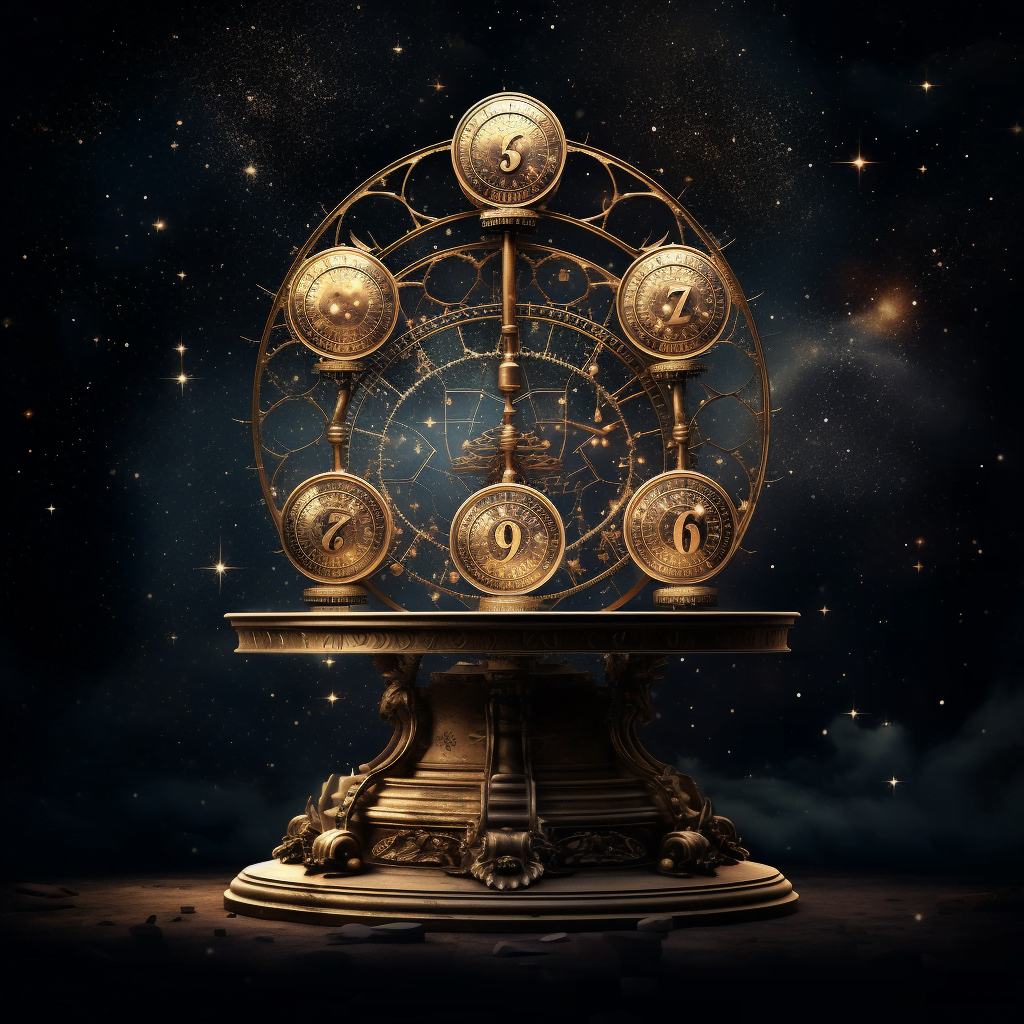Astrology has long been a topic of fascination, with individuals seeking guidance and insight through the analysis of their zodiac signs. However, a deeper exploration into this mysterious practice prompts an intriguing question: Is astrology merely a reflection of narcissistic tendencies? By examining the foundations of astrology and its interconnectedness with the concept of narcissism, this article aims to shed light on whether there is a legitimate correlation between the two phenomena. As we navigate the complex realm of astrology, we will investigate the potential narcissistic implications of aligning one’s identity and personal traits with celestial patterns, ultimately unraveling the extent to which astrology may serve as a canvas for self-absorption.
Astrology and Narcissistic Tendencies
Astrology has long been a subject of fascination for individuals seeking to understand themselves and the world around them. It offers insights into personality traits, relationships, and life events through the interpretation of celestial events. However, there is an ongoing debate about whether astrology and its followers exhibit narcissistic tendencies. This article aims to explore the relationship between astrology and narcissism, shedding light on the potential connection and its implications.
Understanding Astrology
Brief Overview
Astrology is an ancient practice that dates back thousands of years. It is based on the belief that celestial events, particularly the positions and movements of celestial bodies such as the sun, moon, planets, and stars, can influence human behavior and personality traits. Astrologers consider these celestial events, along with the individual’s birth details, to create horoscopes that offer insights into various aspects of one’s life.
Interpretation of Celestial Events
Astrology relies on the interpretation of celestial events to gain insight into different aspects of an individual’s life. For instance, the zodiac signs, which are divided into twelve segments based on the position of the sun at the time of birth, are commonly used to determine personality traits. Each zodiac sign is believed to exhibit unique characteristics and tendencies, providing individuals with a framework for understanding their own personality.
Zodiac Signs and Personality Traits
The zodiac signs play a crucial role in astrology, as they are associated with distinct personality traits. Aries, for example, is often described as confident, ambitious, and assertive, while Taurus is known for being reliable, practical, and patient. These characterizations allow individuals to gain insight into their own behaviors and predict how they may interact with others. However, it is essential to note that astrology’s accuracy and scientific validity have been subject to debate among scholars and researchers.
Narcissism: A Psychological Perspective
Definition and Characteristics of Narcissism
Narcissism is a psychological construct that refers to an excessive preoccupation with one’s self, a grandiose sense of self-importance, and a lack of empathy for others. Individuals with narcissistic tendencies often seek admiration and recognition from others while believing they are unique and should be treated as such. They may have an inflated sense of entitlement and perceive themselves as inherently superior to others.
Narcissistic Personality Disorder
While it is common for individuals to display some narcissistic traits, narcissistic personality disorder (NPD) is diagnosed when these traits significantly impair one’s functioning and relationships. NPD is characterized by a persistent pattern of grandiosity, a constant need for admiration, and a lack of empathy. Individuals with NPD may struggle to maintain meaningful relationships and often have a fragile self-esteem.
Exploring the Relationship
Astrology and narcissism both revolve around personal identity and self-perception. Understanding the potential relationship between the two requires examining astrology as a tool for self-reflection and exploring how it may contribute to self-centeredness, self-importance, and self-esteem.
Astrology as a Tool for Self-Reflection
Emphasizing Individual Traits
Astrology often encourages individuals to focus on their unique personality traits, strengths, and weaknesses. By associating specific characteristics with each zodiac sign, astrology provides a framework for individuals to understand themselves better. This emphasis on individuality can promote self-reflection and introspection, as individuals may contemplate how these traits manifest in their lives.
Validation and Confirmation Bias
One potential concern with astrology as a tool for self-reflection is the concept of validation and confirmation bias. When individuals read horoscopes or consult astrologers, they may seek information that confirms their existing beliefs and desires. This bias can lead to selective attention and interpretation, reinforcing preconceived notions about themselves and hindering genuine self-reflection.
Astrology and Self-Centeredness
Seeking Specialness and Uniqueness
Astrology often provides individuals with a sense of specialness and uniqueness. The belief that the positions of celestial bodies at the time of birth can shape and predict one’s personality traits can be appealing. This desire to see oneself as distinct and exceptional can potentially reinforce narcissistic tendencies, as individuals may become overly focused on their own importance and disregarding the perspectives and experiences of others.
Focus on Personal Needs and Desires
Another way in which astrology may contribute to self-centeredness is by encouraging individuals to prioritize their own needs and desires. By providing insights into personal strengths and weaknesses, astrology can foster a sense of self-awareness, potentially leading individuals to prioritize self-care and personal growth. However, excessively focusing on fulfilling personal desires without considering the needs of others can be indicative of narcissistic tendencies.
Astrology as a Form of Self-Importance
Attention-Seeking Behavior
Astrology’s popularity on social media platforms, where individuals often share and discuss their astrological signs and traits, can contribute to attention-seeking behaviors. Some individuals may use their astrological identity as a means to gain attention and validation from others. This attention-seeking behavior can align with narcissistic tendencies, as individuals seek external validation to validate their self-worth.
Needing Others to Validate Self-Worth
In some cases, individuals may rely on astrology and the opinions of astrologers to validate their self-worth. By attributing personality traits and life events to celestial influences, individuals may seek external affirmation and validation. This reliance on external validation for self-esteem can be indicative of narcissistic tendencies, as individuals may struggle to develop a stable sense of self-worth without the approval of others.
Astrology and Self-Esteem
Boosting Self-Esteem through Identity
Astrology can potentially boost individuals’ self-esteem by providing them with a sense of identity and belonging. By associating themselves with specific zodiac signs and personalities, individuals may feel a sense of pride and acceptance. This boost in self-esteem can be beneficial for those struggling with insecurities; however, it may also contribute to narcissistic tendencies if taken to an extreme, leading to an inflated sense of self-importance.
Coping Mechanism for Insecurities
For some individuals, astrology may serve as a coping mechanism for underlying insecurities and self-doubt. Believing in the influence of celestial events on their lives can provide them with a sense of control and understanding. However, if reliance on astrology becomes excessive, it may hinder personal growth and prevent individuals from addressing their insecurities in a healthier manner.
The Role of Social Media
Astrology’s Popularity on Social Media
Astrology’s popularity has surged on social media platforms, where individuals share memes, posts, and discussions about their zodiac signs on a daily basis. This online trend has led to the dissemination of astrological beliefs to a wider audience, often attracting individuals who are interested in exploring their own personalities and the influence of celestial bodies. However, this popularity also raises concerns about the impact on self-centeredness and narcissistic tendencies.
Promoting Self-Centeredness Online
Social media platforms can amplify self-centeredness due to the inherently self-focused nature of online interactions. When individuals share their astrological traits, experiences, and interpretations, it can lead to a reinforcement of self-centered behaviors, as the focus is primarily on oneself rather than considering the perspectives and experiences of others. This self-centeredness can align with narcissistic tendencies if it becomes excessive and impairs an individual’s ability to engage empathetically with others.
Alternative Perspectives
Astrology as a Tool for Personal Growth
Although astrology’s potential link to narcissism has been explored, some argue that astrology can also serve as a tool for personal growth. By promoting self-reflection, introspection, and self-awareness, astrology can guide individuals on a path of self-discovery and personal development. It can encourage individuals to explore their strengths and weaknesses, fostering empathy and understanding towards others.
Critiques of Narcissism Theory
While the association between astrology and narcissism is noteworthy, it is essential to consider alternative perspectives and critiques of the narcissism theory itself. Some argue that viewing astrology solely through the lens of narcissism oversimplifies the complexity of human behavior and fails to consider other factors such as cultural, social, and psychological influences. It is crucial to approach the relationship between astrology and narcissism with caution and skepticism, taking into account the diverse views and interpretations surrounding these subjects.
In conclusion, the relationship between astrology and narcissistic tendencies is a complex and multifaceted topic. While astrology can serve as a tool for self-reflection and personal growth, excessive reliance on it may reinforce self-centeredness and a sense of self-importance. The rise of social media further adds to the debate, as online platforms can amplify self-centered behaviors and attention-seeking tendencies. However, it is crucial to approach this discussion with an open mind, considering alternative perspectives and recognizing the limitations and subjectivity of both astrology and the concept of narcissism.



